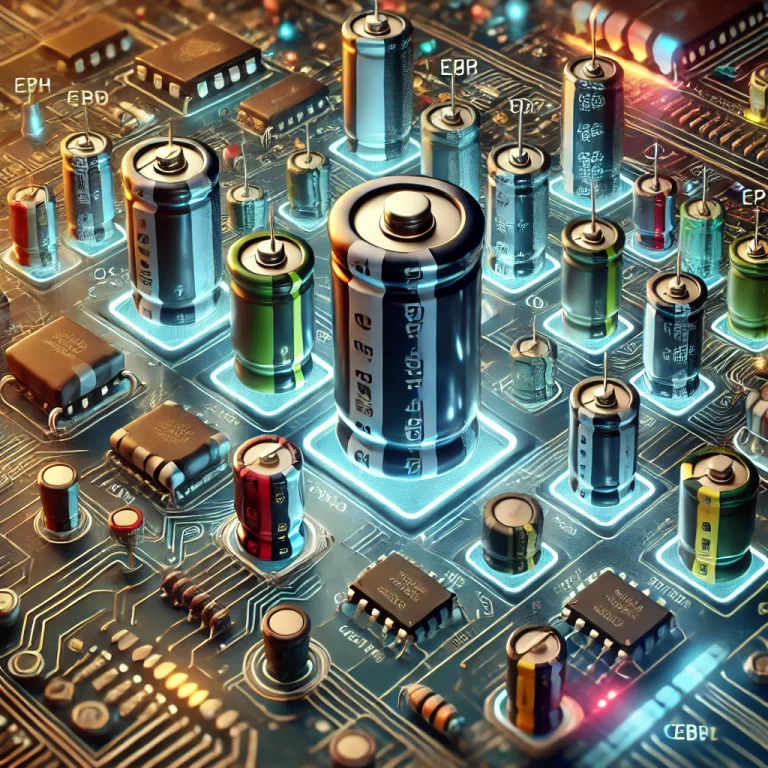Capacitors are essential components in modern electronics, playing a crucial role in various circuits and applications. Their ability to store and release energy makes them versatile and indispensable. Here is an in-depth look at the primary functions of capacitors:
1. Energy Storage and Release
Capacitors can store electrical energy in the form of an electric field between their plates. This energy can be quickly released when the circuit demands it. This characteristic is particularly useful in:
- Power supplies: Capacitors stabilize voltage by providing energy during short drops in supply or during high demand.
- Backup power systems: Capacitors provide short-term energy to critical components during power interruptions.

2. Filtering
One of the most common uses of capacitors is to filter unwanted signals, especially high-frequency noise. This is crucial in:
- Power supply circuits: Capacitors filter out ripple voltage, ensuring a smooth DC output from AC inputs.
- Audio and communication systems: Capacitors eliminate noise or interference in signal transmission, improving clarity and stability.
3. AC Coupling and DC Blocking
Capacitors allow AC signals to pass while blocking DC components, which is essential in circuits like:
- Signal coupling: In audio and radio systems, capacitors transfer AC signals between stages of an amplifier while preventing DC bias from affecting the circuit’s operation.
- DC isolation: Capacitors prevent direct current from damaging sensitive components in mixed-signal circuits.
4. Tuning and Oscillation
In combination with inductors, capacitors form LC circuits that can oscillate at a specific frequency. This property is used in:
- Radio tuning: Capacitors help select specific frequencies in tuners, enabling devices to isolate desired signals from a range of frequencies.
- Oscillators: In circuits like signal generators or clocks, capacitors determine the oscillation frequency.
5. Timing and Delay
The charging and discharging behavior of capacitors can create time delays in circuits. When used with resistors, capacitors form RC circuits that produce a predictable time constant:
- Timing circuits: Capacitors are used in devices like timers or clocks where precise time delays are necessary.
- Pulse shaping: Capacitors influence the timing and duration of pulses in digital circuits.
6. Power Factor Correction
In AC circuits, inductive loads like motors and transformers can cause a lagging power factor. Capacitors counteract this lag by providing reactive power:
- Efficiency improvement: Power factor correction reduces energy losses and improves the efficiency of electrical systems.
- Industrial applications: Capacitors are used in large-scale power systems to balance loads and stabilize voltage levels.

7. Signal Processing
Capacitors are critical in shaping and modifying electrical signals in analog circuits. Applications include:
- Filters: Capacitors are used to construct high-pass, low-pass, band-pass, and band-stop filters, controlling the range of frequencies in a signal.
- Integrators and differentiators: Capacitors are integral to circuits that perform mathematical operations on signals, such as integration (summing input signals over time) or differentiation (finding changes in input signals).
8. Surge Protection
Capacitors protect sensitive components from voltage spikes by temporarily absorbing excess energy. This is common in:
- Transient suppression: Capacitors shield circuits from sudden voltage surges, such as those caused by lightning or switching.
- ESD protection: Capacitors help protect devices from electrostatic discharge in consumer electronics.
Practical Examples of Capacitors
- Consumer Electronics: Capacitors in smartphones stabilize power and filter noise for clean signal processing.
- Industrial Systems: Large capacitors in motors and transformers improve power delivery efficiency.
- Medical Devices: Defibrillators use capacitors to store and deliver precise energy for life-saving interventions.
Conclusion
Capacitors are fundamental to modern electronics, offering versatility in storing energy, shaping signals, filtering noise, and stabilizing circuits. Their applications range from consumer gadgets to industrial power systems, underscoring their importance in technological advancements. By understanding their functions in detail, engineers can design more efficient, reliable, and innovative systems.
